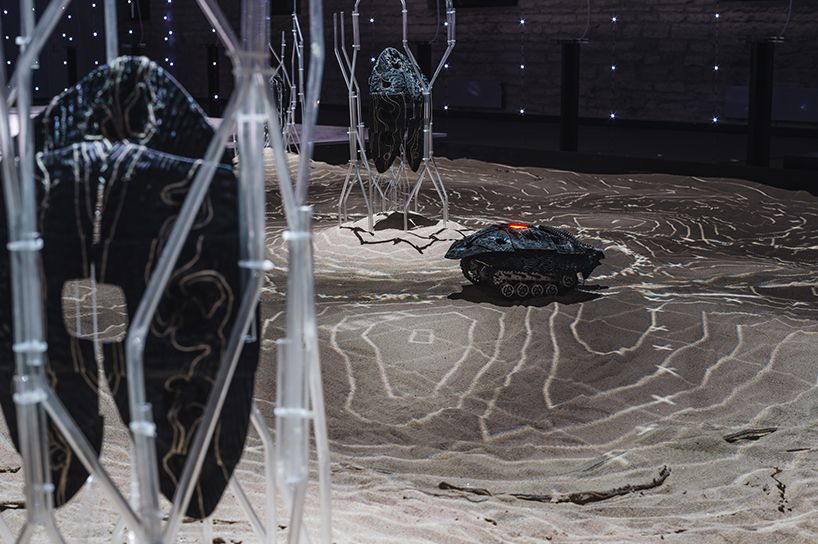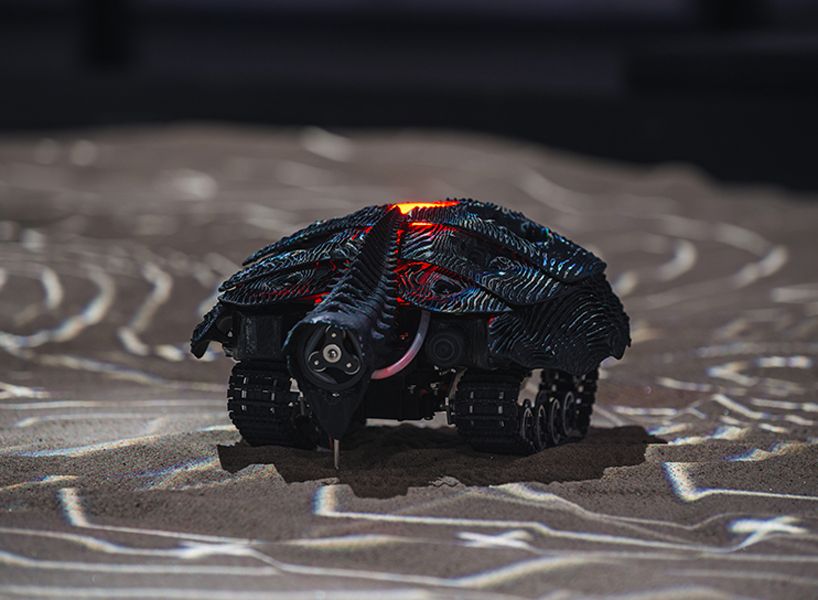for the 2017 tallinn architecture biennale, noumena has presented its installation based on the future of robots and its adaptability with the environment. deep learning has paved the way for machines to expand beyond narrow capabilities to soon achieving human-level performance on intellectual tasks. however, as artificial intelligence — A.I. — establishes its place within humans, society will need to develop a framework for both to thrive. a new form of artificial life will emerge, finding space at the peripheries of humanity in order to not compete for human-dominated resources. A.I. will attempt to improve its operating surroundings to not just survive but be self-sustaining, forming the basis of a civilization constrained at the intersection of nature and technology.
 image © tõnu tunnel.
image © tõnu tunnel.
barcelonian based practice noumena has developed a framework to build this narrative based on the cross disciplinary intersection of computational design, mechanical and electronic design, rapid prototyping interaction and mapping. nowadays, computing tools as well as rapid prototyping machines allow to have a quick practical feedback on design solutions and to iterate experimenting different possibility at the same time giving the chance to choose and custom a functional part.
